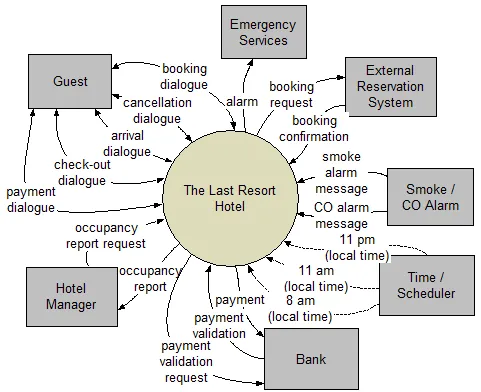The Necessity of a Global Data Privacy Framework
Introduction
The global hospitality industry was profoundly impacted by the COVID-19 pandemic, with the easing of travel restrictions and vaccination drives leading to a surge in international guests in Thailand’s hotels. Alongside this resurgence, the enactment of the Thailand Personal Data Protection Act (PDPA) brought significant changes to data privacy compliance requirements for hotels. As the industry embraces international guests, adopting a global data privacy framework becomes crucial to ensure seamless compliance with diverse data protection laws across borders. This article examines the impact of the Thailand PDPA on the Hotel Hospitality Post-COVID: and highlights the importance of implementing a comprehensive global data privacy strategy.
-
Stricter Data Protection Obligations
The Thailand PDPA introduced comprehensive data protection obligations for businesses, including hotels. Hotels now need to ensure that the personal data of guests, employees, and other stakeholders are collected, processed, and stored in compliance with the law. The Act grants individuals greater control over their data and imposes stringent penalties for data breaches, which necessitates a heightened focus on data privacy measures.
-
Handling International Guest Data
With the reopening of borders, hotels in Thailand are welcoming a diverse array of international guests. As guests’ personal data may originate from different countries with distinct data privacy laws, complying solely with the Thailand PDPA may not be enough. Having a global data privacy framework allows hotels to manage international guest data in alignment with various regulations, ensuring consistent data protection practices across borders.
-
Building Trust with International Guests
International guests place a premium on their data privacy, particularly when traveling abroad. By demonstrating a strong commitment to data protection through a global privacy framework, hotels can build trust and foster loyalty among their international clientele. The assurance that their personal information is handled responsibly bolsters the hotel’s reputation and encourages repeat business.
-
Streamlining Compliance Efforts
Navigating the complexities of data privacy laws in different countries can be challenging for hotels with an international clientele. A global data privacy framework creates a standardized approach to data protection, streamlining compliance efforts and reducing the risk of non-compliance due to misunderstandings or misinterpretations of varying regulations.
-
Strengthening Data Security Measures
The Thailand PDPA emphasizes the need for robust data security measures. A global data privacy framework compels hotels to implement standardized security protocols, protecting personal data from unauthorized access, breaches, or cyberattacks. Consistent data security practices across borders help safeguard sensitive guest information.
-
Preparing for Future Expansions
As Thailand’s hospitality industry continues to attract international guests, hotels may explore opportunities for expansion in other countries. A global data privacy framework positions hotels to seamlessly adapt their data protection practices to meet the requirements of new regulatory environments. This forward-thinking approach ensures a smooth transition when establishing operations in other countries.
-
Complying with International Industry Standards
Beyond legal obligations, a global data privacy framework enables hotels to align with international industry standards and best practices in data protection. Complying with global standards is increasingly crucial for participating in global business networks and attracting business travelers who expect the highest level of data privacy compliance.
Conclusion
The Thailand Personal Data Protection Act has brought a significant shift in data privacy compliance requirements for the Hotel Hospitality Post-COVID:, particularly as international guests return post-COVID. The increasing number of international guests necessitates a data privacy approach that transcends borders. By adopting a global data privacy framework, hotels can ensure consistent compliance with diverse data protection laws, strengthen data security measures, build trust with international guests, and streamline their compliance efforts.
As Thailand’s hospitality industry continues to flourish, embracing a global data privacy strategy becomes paramount. Implementing a comprehensive framework will not only safeguard the privacy of international guests but also reinforce the hotel’s reputation as a trustworthy and responsible data handler. Ultimately, a commitment to global data privacy compliance will propel the hotel hospitality industry towards sustainable growth and success in an increasingly interconnected world.
See how Formiti Data International have capped their comprehensive PDPA service for organisations to an incredible price.
See Pricing
